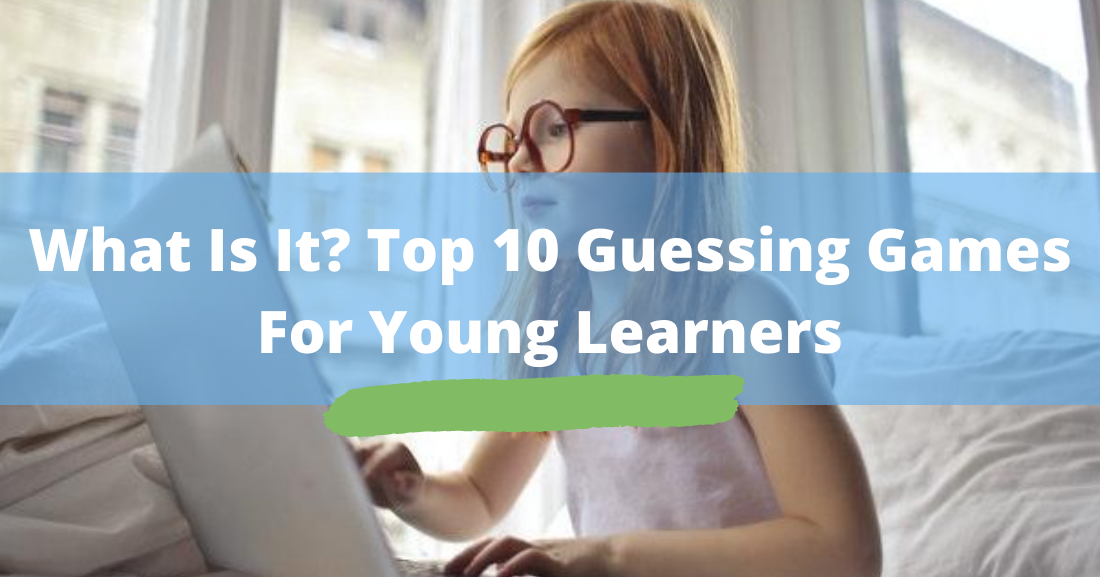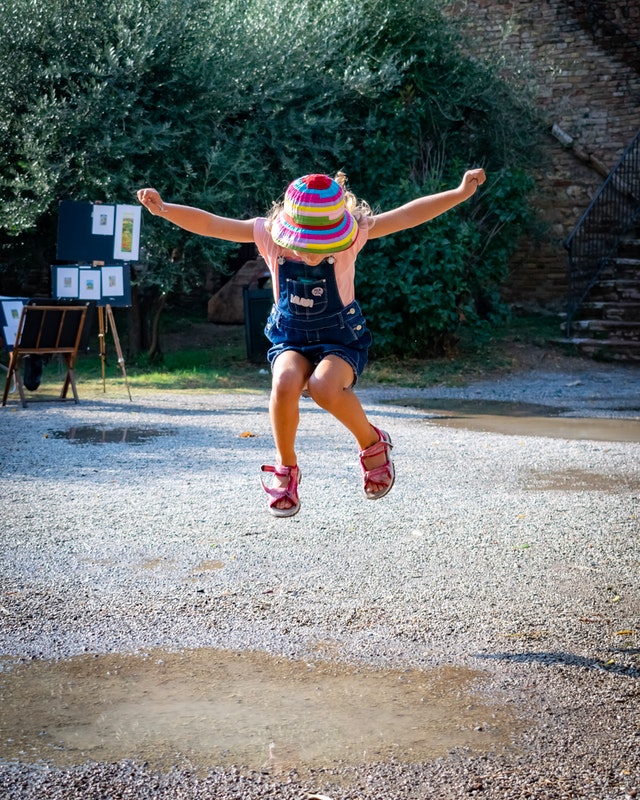The crowd is roaring. They’re going mad with anticipation. Eyes are wide open. Hands are up. Soccer fans at the World Cup final? Nope. A group of young learners trying to guess the right answer.

Guessing games are engaging and make them think – the ideal way to practice key vocabulary and grammar.

Top 10 Guessing Games for Young Learners
-
1
Guess the Animal
Give students an animal flashcard or have them take one from a bag. They must give their classmates clues as to what animal it is:This animal lives in the jungle. It eats bananas. It’s brown.
-
2
Guess Who?
This guessing game is very similar to the classic game Guess Who? Use the real board game if you’ve got it or print copies of this sheet to hand out to teams of two students. Separately print out strips of paper with the names. Student A draws a name from the bag. Student B has to guess who they are by asking questions: Do you have brown hair? Do you have blue eyes?
-
3
Celebrity Guess Who?
This game is very similar to the above. Simply use celebrity photos instead.
-

-
4
Guess my Job
Print out a sheet of clues like this one. If students guess the profession after the first clue they get three points, if they guess after the second they get two points and after the last clue they get one point. You may be using language your young learners may not use themselves, but they are capable of understanding a lot more than you think. In any case, you may adapt the clues to suit their level, and even use this point-giving strategy for any type of guessing game.
-
5
Listen up – and Guess!
A fun spin on the guessing game is playing short audio files and having students guess what it is. FreeSFX has hundreds of sound files to choose from. Can your class tell the difference between a mouse squeaking and a bird chirping? How about a bear’s growl and a lion’s roar? Find out!
-
6
Guess the Mystery Object
This is a classic in my young learner’s classroom and one of my personal favorites. Take a big cloth bag and place one item in it. Students put their hands inside the bag and feel the object to guess what it is. You can do this with classroom objects, animals, toys or any piece of realia.
-
7
Language Hangman
Who hasn’t played this classic whiteboard game? But try this variation to help students review any expressions they’ve recently learned. Draw enough number of blanks to represent each letter of the words contained in the expression. For example, for “thank you” you’d draw blanks like this: _ _ _ _ _ _ _ _ . You may choose to add the first letter or the last one to get them started, o a random letter in the middle. Students have to not only guess the correct expression or phrase, but also use it with a partner.
-
8
Guess What I Bought!
Another great way to review vocabulary. Tell your class you went shopping yesterday and that they must guess what you bought. Describe each object in terms they can understand: It’s warm. It’s brown. You put it on your head (it’s a hat). If they guess correctly show them a flashcard or magazine cutout of the item.
-

-
9
Guessing Rhymes
Rhymes are great for practicing pronunciation. I’m thinking of an insect. It rhymes with sea (bee). I’m thinking of a fruit. It rhymes with beach (peach).
-
q
Riddles
Children love riddles so feel free to try some out in your ESL class. ESLMOBI has a great list you can use. If some are too hard for students to guess, try giving them additional clues. These animal riddles are also great!

Bonus Game: I Spy
This is a classic that children love and has variations throughout the world in different languages. Choose an object that is clearly visible in the classroom. Or an object from a large illustration. Say, “I spy with my little eye something green/that you wear on your feet/that you use to write”. The student who guesses correctly first gets to choose an object and continues the game by saying “I spy…”.

Additional tips for guessing games:
- Divide the class into teams. Students take turns giving their teammates the clues so that they can guess for points.
- Allow them a limited number of clues, say three. If the team guesses with those three clues they get 10 points. It teammates still can’t guess, they’re allowed to ask additional questions, but each additional question subtracts two points.
- Switch roles! Have students give you the clues and guess what they are describing. You can have lots of fun with this. Pretend you have no idea so students are forced to come up with extra clues.
Guessing games like these are great warmers or fillers, as well as a fantastic way to end the class on a fun note!
Have I forgotten any popular guessing games young ESL learners love? Add them in the comments below.
P.S. If you enjoyed this article, please help spread it by clicking one of those sharing buttons below. And if you are interested in more, you should follow our Facebook page where we share more about creative, non-boring ways to teach English.






